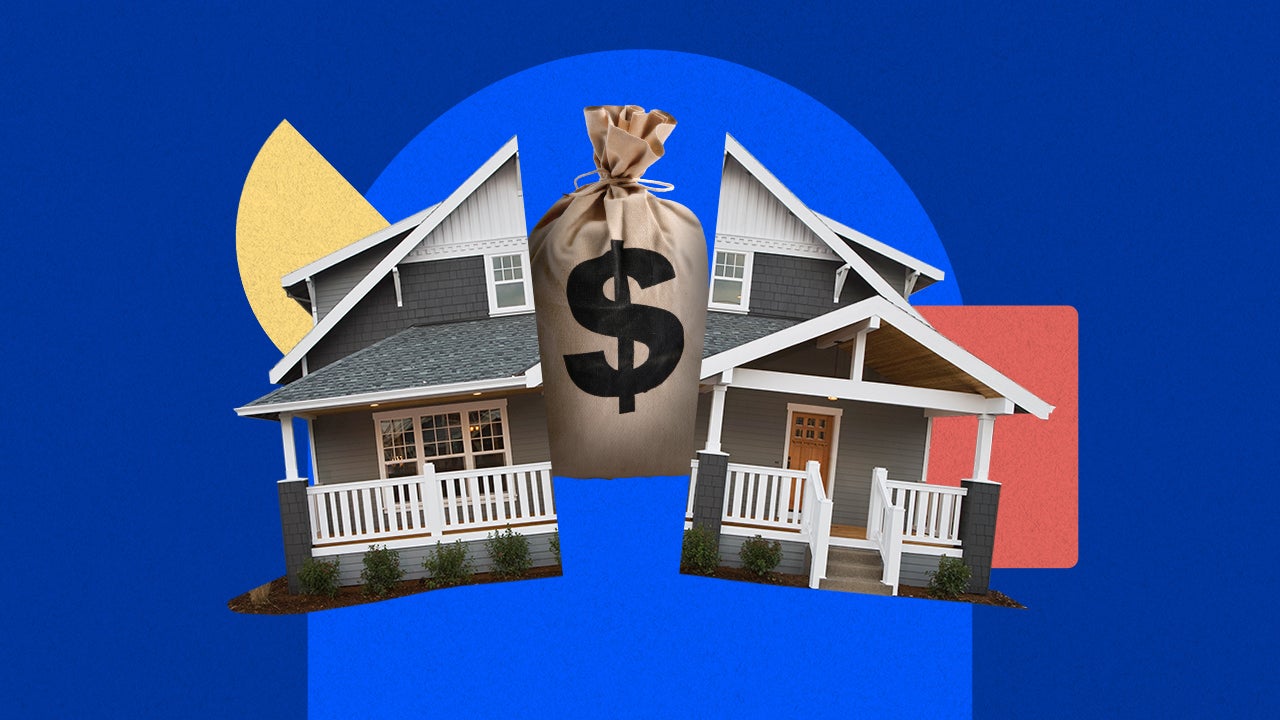Is buying real estate in your kid’s college town a smart investment?

Key takeaways
- It’s not just tuition that drives up the cost of college — the cost of room and board at U.S. universities has risen by 44 percent since 2000.
- Buying real estate in your child’s college town can help reduce these expenses and even allow for living rent-free.
- Owning a home in a college town can also provide a valuable source of ongoing rental income.
It’s no secret that the cost of higher education is sky-high. The average cost of college in the U.S. has more than doubled in the 21st century, according to a 2024 study by the Education Data Initiative. And the expenses associated with housing make up a significant portion of the price tag: Room and board at a four-year institution now averages $12,917 a year, the study reports.
With prices that steep, it’s natural to wonder about more cost-effective housing options. Buying a house or apartment near your child’s school may be a better investment than footing the bill for four years of dorms and dining halls. In addition, you’ll build equity through homeownership, and real estate can provide a source of rental income over the long term. But it’s also important to be aware of the work and challenges that may be involved. For parents who can afford to, is it a smarter financial move to buy a property near campus for their child to live in?
Tuition is expensive, but so is room and board
Dorm life can have benefits, including bonding with other students and being conveniently close to classes and campus amenities. But the cost is considerable: Between 1963 and 2021, the cost of college room and board increased dramatically, nearly doubling from $6,764 to $12,595, according to a study by BestColleges.com. The cost increased by 44 percent just between 2000 and 2021.
In addition to the price tag, dorms may have other drawbacks, such as a lack of privacy and constant noise and distractions. They also typically have fairly restrictive policies: Residents often cannot cook for themselves, for example, and in some cases are not allowed to keep a car.
For the price of room and board in many places around the country, it may be possible to buy a home instead. It’s an option that may be far more valuable over the long run, allowing for accumulation of equity and potentially a tidy profit on resale. There’s also potential to make money by renting out extra bedrooms to other students, or to keep it as an investment property even after your child has graduated.
“Having roommates that pay rent to offset the mortgage can basically allow your child to live rent-free,” says Mason Whitehead, branch manager with Churchill Mortgage in Dallas, who has had several clients purchase property in their children’s college towns. “In many cases, it can even provide additional cash flow beyond that to offset other expenses,” he says.
In addition to financial benefits, there’s also a measure of satisfaction that comes with homeownership. Despite today’s tough housing market, Bankrate’s Home Affordability Report found that 69 percent of U.S. homeowners, if they had to do it over again, would still buy their current home.
Note: Percentages are among U.S. homeowners.
Source: Bankrate survey, April 15-17, 2024
Buying property in a college town for your child to live in
Having your child live in a home you own during college can offer parents peace of mind, knowing they have a secure place to call home for as long as they need it.
In Syracuse, New York, home to Syracuse University, eXp Realty agent McKenzie Kelly helps a few clients each year purchase a home for children who are attending the university. Often, she says, these families only hold on to the home for four years and don’t necessarily view the purchase as a source of income or profit. For them, it’s simply a better housing option than a dorm or a rental.
“A lot of parents aren’t interested in making money off it,” says Kelly. “The parents that do this would rather lose $2,000 or $10,000 on a house they own than rent something for their child and lose money on renting. This way, they know that their child is in a home, and they’re not worrying about dorms or apartment buildings or safety concerns.”
In addition, says Kelly, these buyers like knowing that the house will be easy to resell when the time comes, because there’s always a new wave of students moving into town.
But, of course, these parents are also signing on for all the costs and responsibilities that come with homeownership. Here are some of the pros and cons of buying a home for your child to live in during college.
Pros
- Less restrictive environment: Dorms often have strict rules surrounding everything from curfews to food to guests. Owning a home that your child can live in provides more freedom.
- Learning experience: Maintaining a home can be an important learning experience for a young adult, one that helps prepare them for independence and owning their own home down the road. If their name is on the title or the utilities are in their name, it can even help them build credit.
- Rent-free housing: In homes with multiple bedrooms, it may be possible to rent out extra rooms to other students and fully cover the mortgage, providing your child with “free” housing. The revenue stream from rental income may even provide additional funds to cover other college-related expenses for your child.
Cons
- Maintenance and upkeep: College students are not always very responsible, and a few parties can be pretty hard on a home. You may need to regularly invest money in maintenance and repairs.
- Part-time tenants: Many college students are only in town during the school year and therefore are not interested in a 12-month lease. You may have to cover the mortgage out-of-pocket for a few months each year if you can’t find tenants who want to stay through the summer.
- Investment may not pay off: Home prices are steep right now, as are mortgage rates, and inventory is limited. So you’re likely to pay a premium for a home, especially in a popular area. If you only intend to own the property for a few years, the investment may not be worth the price.
Buying in a college town as an investment
Even if you don’t have a child attending the school, owning a home in a college town can be a valuable investment over time. “The odds of success are more in your favor over the long-term, as potential price appreciation and a growing stream of rental income can offset expenses and the significant transaction costs,” says Greg McBride, Bankrate’s chief financial analyst.
Pros
- Steady stream of potential renters: Year after year, there’ll be a new wave of students moving into town, providing a reliable, ongoing stream of prospective tenants.
- Building equity: Owning real estate means building equity over time, a valuable way to build wealth.
- Additional income: A rental in a desirable area can provide a steady source of rental income. If multiple bedrooms are being rented out, the income might even cover your entire mortgage and then some.
Cons
- Constant tenant turnover: With students coming and going every nine months or so, you may find yourself always on the hunt for your next tenant.
- Vetting prospective tenants: Screening applicants may be challenging, as students are not likely to have a previous rental history, credit history or steady paycheck. You could wind up spending a lot of time lining up adult cosigners.
- Regular repairs and maintenance: Upkeep and repair costs associated with a college rental property can add up, especially with rowdy students and constant turnover. And if you don’t live close enough to handle things in person, you may have the added expense of hiring someone to do these tasks for you.
Drawbacks of buying real estate in a college town
Owning a property in a college town may not be entirely smooth sailing. “As attractive as the prospect of renting out additional rooms and generating income to offset the cost of your own kid’s college may appear, it is no slam dunk over the short-term,” says McBride. “There are significant transaction costs from buying and then turning around and selling just a few years later, plus ongoing maintenance, repairs and carrying costs such as property taxes and insurance.”
It’s important to be sure you’ve accounted for all of these expenses and still have a high degree of confidence that the purchase will be profitable, if profit is what you’re after.
There are also factors unique to owning a rental property in a college town that are important to consider. Everything from vetting prospective renters to maintenance and upkeep are likely to be more time consuming. The tenant demand will also be seasonal, aligned with the school year, potentially leaving you without tenants during the summer.
In addition, says Whitehead, the financial success of your rental may be linked to the fortunes of the university. “If it’s not a major school and you’re depending on students for tenants, then your property cash flow and financial success is tied to the success and enrollment of the school,” he says. “Also, some smaller colleges require on-campus living for the first year or two, in which case your tenant pool is smaller.”
Bottom line
Like many of the other expenses associated with attending college, the cost of room and board has skyrocketed over the past few decades. Faced with such expenses, some families are opting to purchase a home in their child’s college town to provide housing rather than foot the bill for a dorm. This can be a smart move, but be sure to crunch the numbers and make sure you’re prepared for all of the expenses and work that are likely to come along with owning a home in a college town. And if you’re ready to start looking, seek out an experienced real estate agent in the area who knows the ins and outs of the town.
BestColleges.com is owned by Bankrate’s parent company, Red Ventures.
Why we ask for feedback Your feedback helps us improve our content and services. It takes less than a minute to complete.
Your responses are anonymous and will only be used for improving our website.






